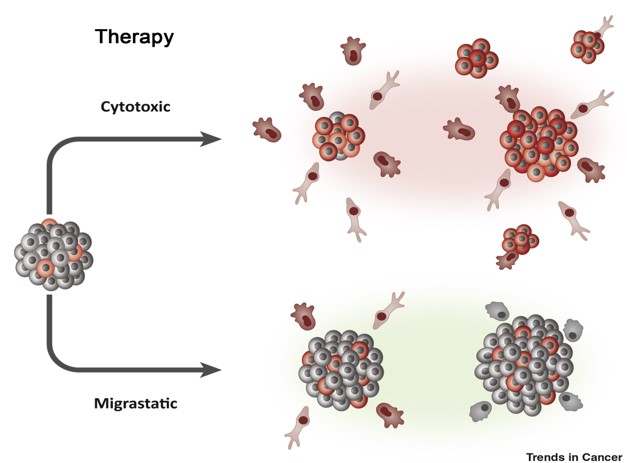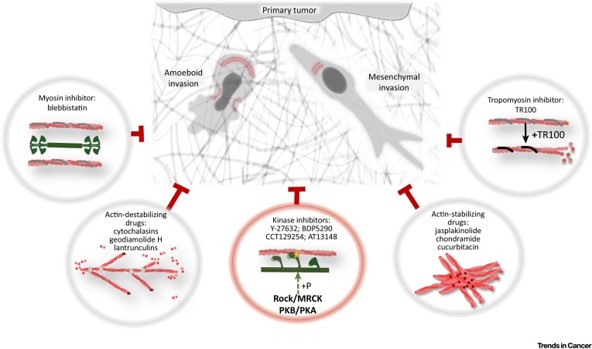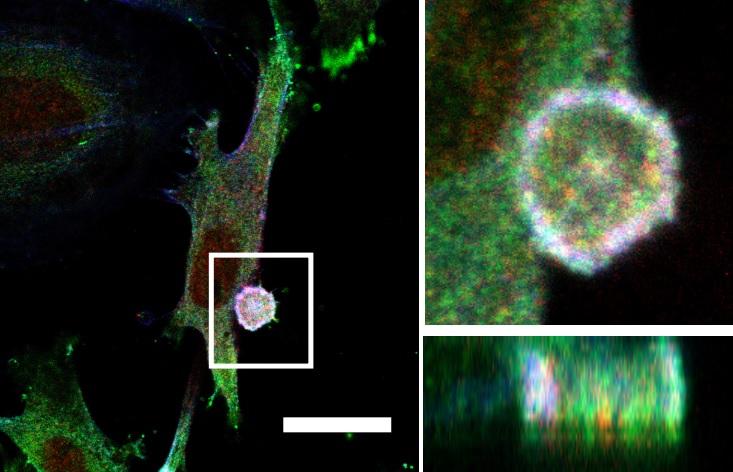New PhD Project Available!
Project title: Metabolic reprogramming of cancer cells upon changes in style of migration
Project leader: Jan Brábek, PhD, Assoc. Prof., brabek@natur.cuni.cz
Key words: cancer metabolism, mesenchymal migration, amoeboid migration, cancer cells
Abstract:
The ability of cells to invade and metastasize belongs among the hallmarks of cancer, as defined
by Weinberg and Hanahan. During dissemination from a primary tumor, cancer cells invade the
ECM most commonly in clusters or sheets, what is referred to as collective migration, which
requires proteolytic degradation at the invasive front and cell contractility in the following cells.
Alternatively, single cancer cells can detach and invade using protease-dependent
mesenchymal migration or protease-independent amoeboid migration, or combination of both.
Further, many cancer cells can actively switch between these invasion modes in response to
changes in the surrounding environment and/or to escape therapy. Within the primary tumor site,
metabolic differences divide cells into distinct subpopulations that have unique capabilities
enabling them to proceed through the metastatic cascade. Additionally, because cells are
reprogrammed at different stages of metastasis to rely more on glycolysis or oxidative
phosphorylation, it is crucial to understand which pathway is dominant at each stage. The aim of
this project is to elucidate the link between cancer metabolism and different modes of migration
in both 2D and 3D conditions, since it has been demonstrated that metabolism in 3D spheroids
differs significantly from what is measured in 2D cultures, both in terms of glycolytic and
oxidative phosphorylation metrics. To achieve this goal, we intent to analyze cancer cell
migration and invasivity after inhibition of OXPHOS and/or glycolysis in 2D and 3D in cancer
cells exhibiting different modes of migration. The project also aims to examine the metabolic
reprogramming of cancer cells during the mesenchymal-to-amoeboid transition and vice versa.






